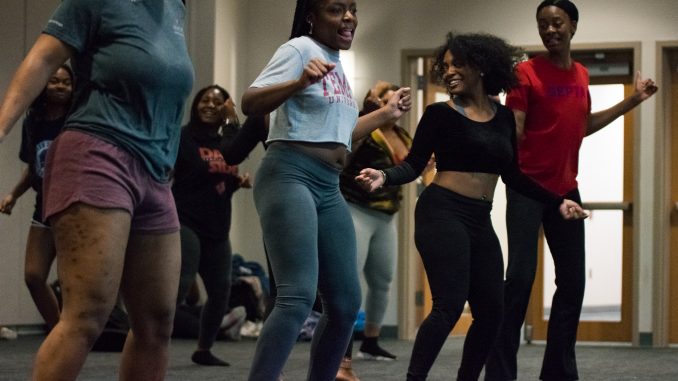
Today marks the end of Trinidad and Tobago’s Carnival, a celebration of freedom and a time of fun before a religious season.
Carnival began in 1783 after the French colonized Trinidad, according to the National Library of Trinidad and Tobago. Non-white people were not allowed to participate in the festivities until 1838 when slaves were freed and Trinidad became independent — prompting the joyous celebration seen across the world today.
Carnival also occurs before Ash Wednesday to mark the beginning of the Christian season of Lent, according to the National Carnival Commission of Trinidad and Tobago.
Some of the traditions of Carnival are misunderstood by non-Trinidadians. Latanya N. Jenkins, a reference librarian for government information and Africology and African American studies and a Trinidadian-American, said a common misconception is that the time is only about “bacchanal,” or wild partying.
“Carnival is a celebration of community and inclusion of all people if you are there to have a good time,” she said. “There is laughter and togetherness, [and] there is great food.”
Senior dance major and Trinidadian Makayla Peterson said people often think the celebration has a sexual component to it, but it does not. One of the reasons she said this persists is because of people’s perception of dance styles seen at the festival, which include wining, which when you move your waist in a circular motion.
In the culture, there is no sexual connotation to the dance, she said.
“People think when we wine automatically means that you’re trying to go further than the dancing, but in the culture of the dance is just to dance, and that’s it,” she said. “I could dance with my mother, my father, my grandfather, my friend or my boyfriend. It’s not seen in any particular way.”
Another way non-Trinidadians sexualize the holiday is through costuming.
“In the culture, it’s not like, ‘Oh I’m showing skin.’ It’s like, ‘Oh, I’m wearing a costume,’” Peterson said.
Senior criminal justice major and Trinidadian Cierra Jenae Hargett-Khalifa’s mother has designed costumes for different global Carnival celebrations for 15 years. Her mother designs costumes of all styles, from the more “revealing” bedazzled and feathered bikinis to those that reflect the 1700s, when the festival was introduced to the island, according to the National Carnival Commission of Trinidad and Tobago.
Hargett-Khalifa said costumes’ meanings vary from person to person.
“For my family, the carnival costume itself symbolizes our creativity,” she said. “It’s more important to us because we’re seeing our physical work. Whereas for other people, it could just be symbolizing the history of whatever country you’re from.”
The sexualization of Carnival inspired Hargett-Khalifa to create a video in a criminal justice course about stereotypes of West Indian women and the over-sexualization of the culture and Carnival.
Hargett-Khalifa feels insulted that people assume Carnival, an important cultural holiday for her and her family, is inherently sexual.
“People think of it as, ‘Oh, that’s just like women and males excuse to go out and be naked,’ and I feel like that’s just so disrespectful because that’s not what Carnival’s about,” she said. “I feel like people that don’t know about our culture that tried to use it as an excuse. I think they’re the ones that’s causing this misconception because that’s totally not what it’s about.”
Instead, Carnival is meant to be a time to celebrate freedom, Jenkins said.
“To me, Carnival is a celebration of culture that means a history of overcoming the adversity of enslavement and British rule, celebrating the drum beats and lyrics of soca music, enjoying the colorful and exciting costumes and dancing,” she said. “It’s representative of culture that is as complex as religion and politics.”
For Hargett-Khalifa’s family and many Trinidadians, both Carnival and Lent are important traditions.
“You can still do your fêteing, but once that season is done, you need to reconnect to your religious roots,” she said.
Peterson’s favorite memory of Carnival happened in Miami, where she celebrated the festival with her friends. The celebration was just one of the many worldwide Carnival celebrations that occur every year, according to the Global Canivalist travel blog.
Peterson felt that sharing her culture with her friends allowed her to be her true self.
“Being able to celebrate my culture and have an amazing time with my friends like that was just like such an amazing experience because they were just open to it,” She said. “I feel like I’ve never gotten to do that I feel I’ve been a lot of ways I’ve always had legend no diminish or like hide the true value to myself because people wouldn’t get it.”


Be the first to comment